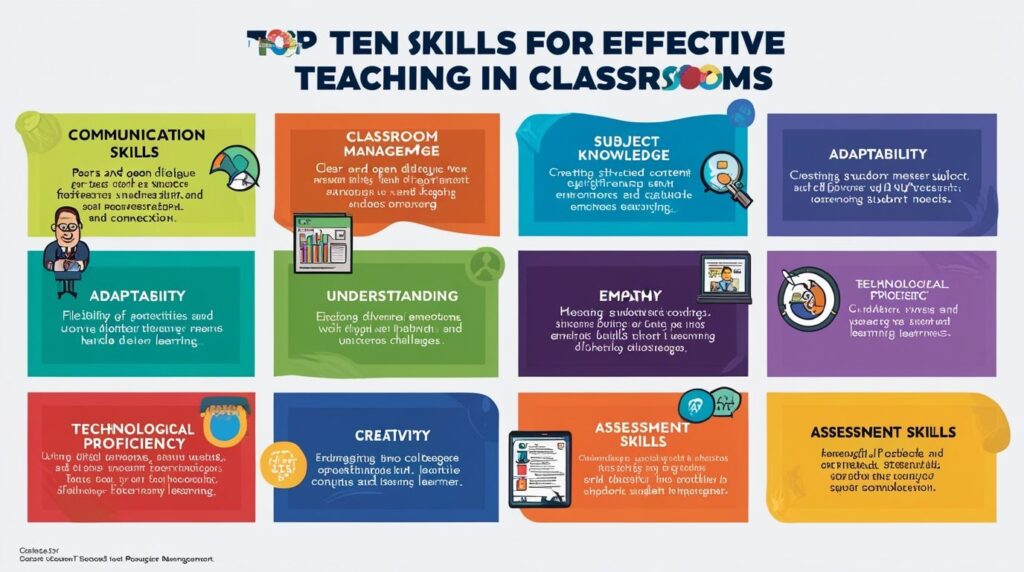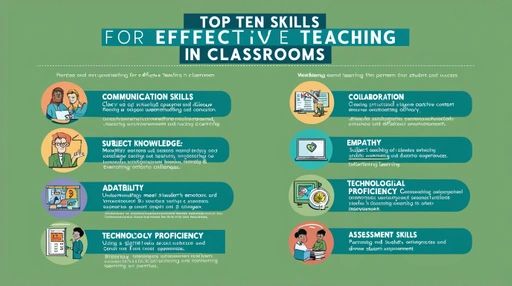Introduction
Top Ten Skills for Effective Teaching in Classrooms, Effective teaching is a blend of various skills that enhance the learning experience and ensure the success of students. Below are the top ten skills every educator should possess to thrive in the classroom.
1. Communication Skills
Strong communication is the foundation of effective teaching. Teachers must convey complex ideas clearly, listen actively, and encourage open dialogue. This skill fosters better understanding and builds rapport with students.
2. Classroom Management
Maintaining order and ensuring a conducive learning environment is vital. Teachers must establish clear rules, use positive reinforcement, and address disruptions tactfully to maximize instructional time.
3. Subject Knowledge
A deep understanding of the subject matter is essential for teaching effectively. Teachers should stay updated with the latest developments and present content in engaging ways that resonate with students.

4. Adaptability and Flexibility
Classrooms are dynamic, with diverse learners and unexpected challenges. Teachers must adapt their strategies to meet varying needs, modify lesson plans on the spot, and embrace changes in teaching methodologies.
5. Empathy and Emotional Intelligence
Understanding students’ emotions and perspectives helps create a supportive environment. Empathetic teachers can address individual challenges and foster a sense of belonging in the classroom.
6. Technological Proficiency
Incorporating technology into teaching enhances engagement and accessibility. Teachers must be proficient in digital tools, learning management systems, and multimedia resources to make learning interactive and modern.
7. Time Management
Effective teachers prioritize tasks, allocate appropriate time for each activity, and ensure lessons progress smoothly. This skill is crucial for covering the curriculum while accommodating individual student needs.
8. Creativity and Innovation
Creative approaches keep lessons interesting and cater to different learning styles. Innovative teaching methods like gamification, storytelling, or project-based learning help students retain information and think critically.
9. Assessment and Feedback
Teachers must evaluate student performance effectively using formative and summative assessments. Constructive feedback helps students understand their strengths and areas for improvement, driving growth.
10. Collaboration Skills
Teaching is a collaborative profession that involves working with colleagues, parents, and administrators. Building strong partnerships and sharing insights ensures a holistic approach to student development.
Conclusion
Effective teaching requires a combination of these skills to inspire and nurture students. By continuously refining their abilities, teachers can create a dynamic and impactful learning environment that supports academic and personal growth.

8 thoughts on “Top Ten Skills for Effective Teaching in Classrooms”
Comments are closed.